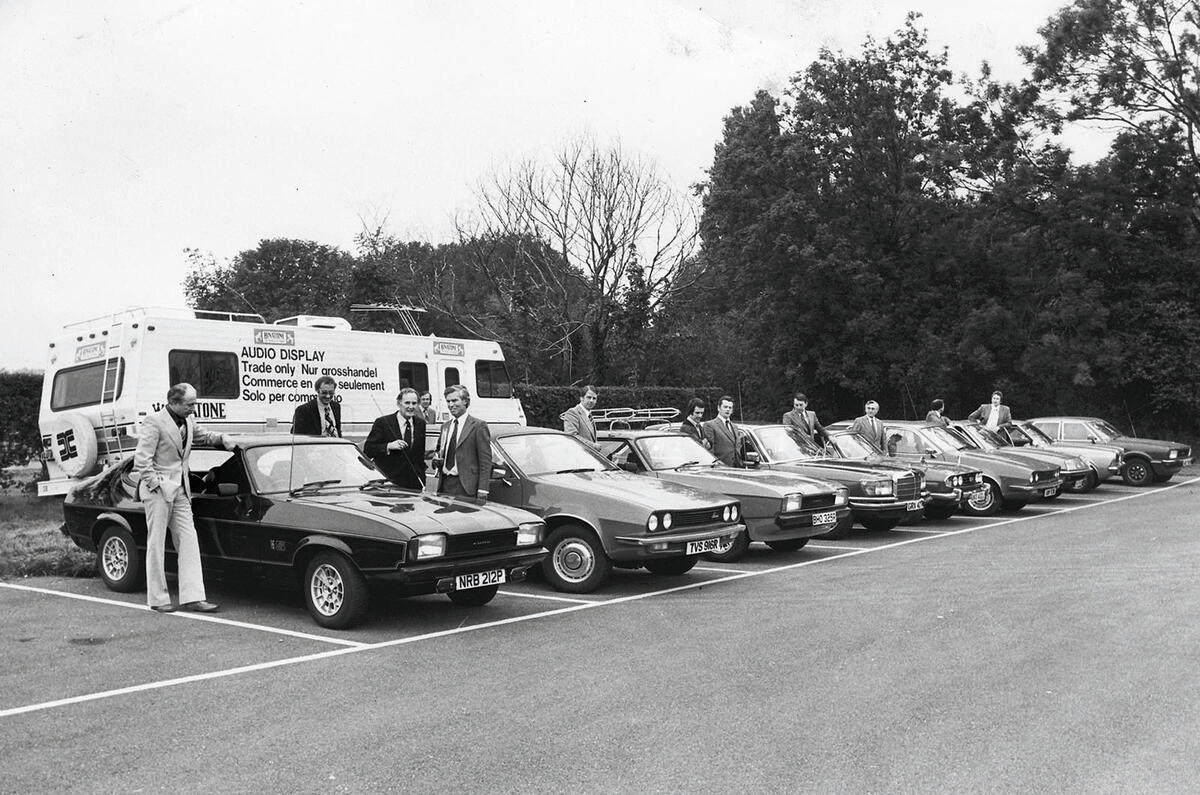In-car audio made big strides during the 1970s, assisted by the advent of stereo technology and the cassette tape.
By the late 1970s, picking through the myriad options on offer was a daunting task, so in 1977 Autocar invited a number of leading car audio manufacturers to a practical demonstration and test.
Ten sets were submitted for appraisal, installed in a variety of vehicles ranging from a Mercedes-Benz S-Class to an Itasca motor home that Binatone used as its sales vehicle.
Autocar set an “exacting test route” that would test the units’ radio reception. “As a venue we chose a hotel near Staines, as an area where signal strength is poor and stereo reception is marginal. Cassette units were assessed using a Dolby-recorded hi-fi test cassette,” wrote Autocar’s audiophiles.
Each unit was appraised for ‘salient’ and ‘not so salient’ features and then tested for radio and cassette functions.
There was high drama before the test even started: “Philips was unlucky in having a breakdown with the car they were bringing to the test day, so they were unable to be included.”The cheapest unit on sale was the Sanyo 4305E (£56.19) radio/cassette combination that, somewhat conversely, was installed in the S-Class.
Binatone brought the £58 Alpine, while Javelin – a new British company importing sets from Japan – offered the £110 Roadstar RS1100 tape unit and pre-amp – “a scaled-down version of a good hi-fi set-up”, reckoned our men.
Also at £110 was Sharp’s RG 5750 radio/cassette, which offered strong FM performance: “On the day of the test, Radio Medway could be listened to in the Windsor area without interference.”
Pioneer’s KP55G (£138) eschewed radio and focused solely on cassette. A good move, reckoned our testers, who awarded it five stars and wrote: “Quite outstanding and compares very favourably with many home hi-fi units.” The only drawback was the non-locking fast forward and rewind buttons: “It is a little tedious, and potentially dangerous if you are driving, to have to hold down the rewind button for several minutes when using a C90 cassette.”
Many of the units offered FM radio in addition to long and medium waves. FM in cars was a relatively new development as “people seek the standards of musical reception in the car to which they are accustomed at home”.
Autocar’s testers added: “It is not until one spends all day listening to FM broadcasts that the shortcoming of AM radio becomes so apparent. Listening to a concert on MW is rather like looking at an uncleaned Rembrandt portrait through smoked glass.”
The Lucas LS270 (£157.50) was afforded five stars and adjudged to have the “most impressive tape reproduction, giving a wide range of sound, plus the advantage of auto reverse on the cassette”. However, its radio was marked down for a “loss of stereo on our route”.
The Pioneer KP8300 (£211) also excelled, being the only system on test to be awarded five stars for both radio and cassette performance. “Superb tone and range of sound. Price high but justified,” was the verdict.




Join the debate
Add your comment
The references in the tests
bowsersheepdog wrote: Not
Especially in 1977, as they weren't released until the eighties...
You should do something similar now.....